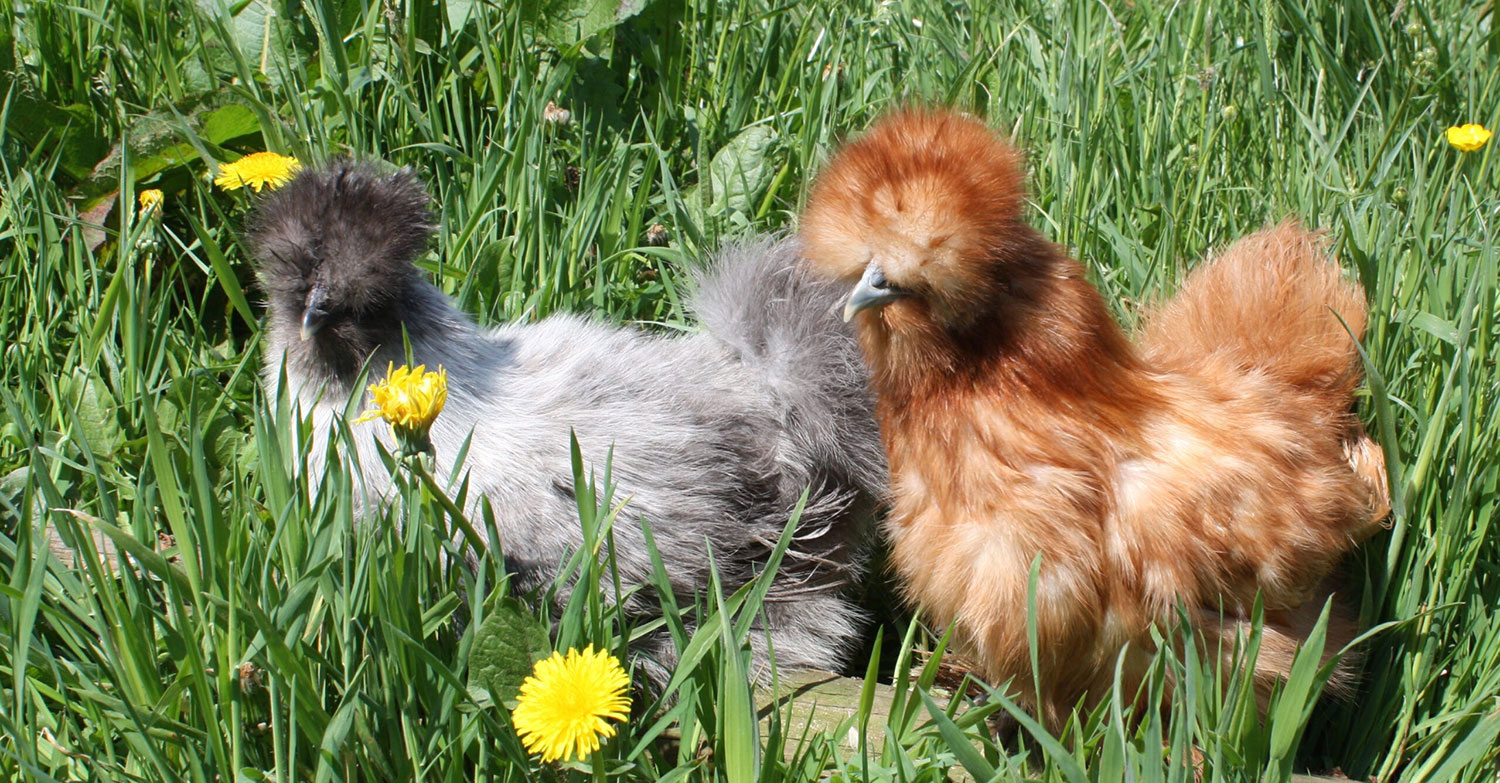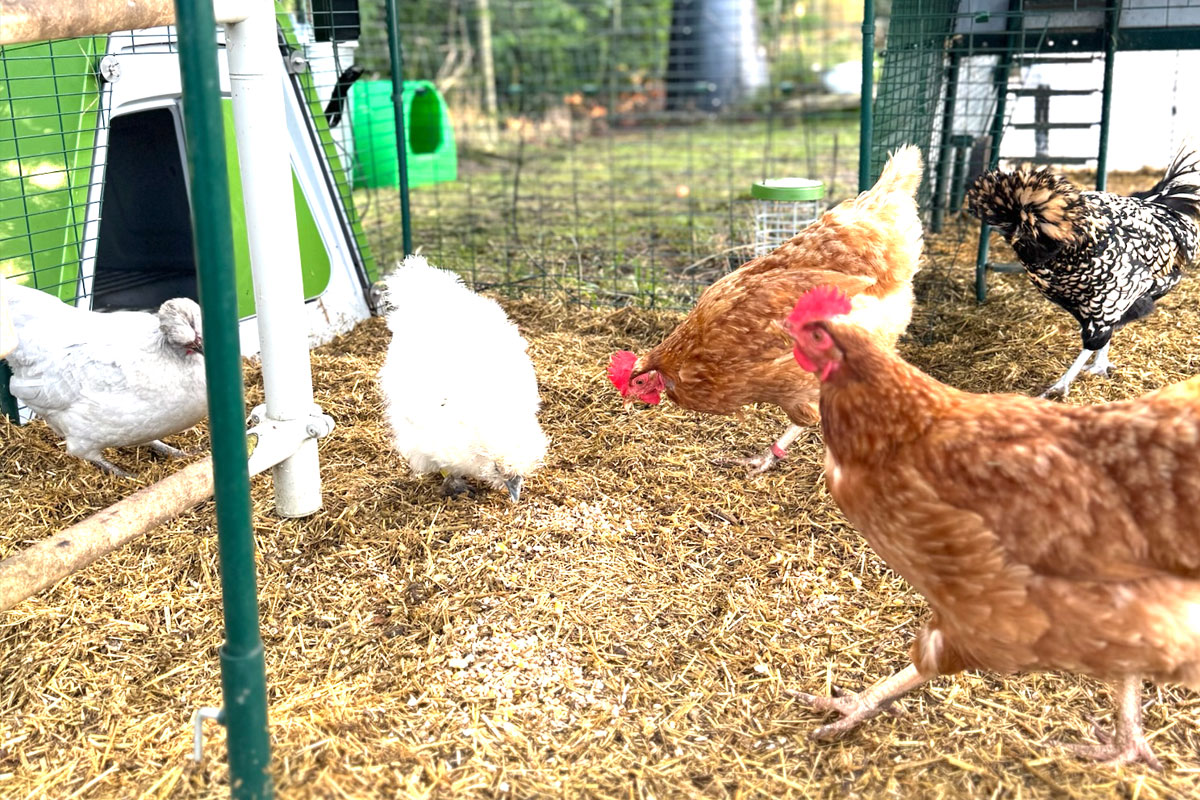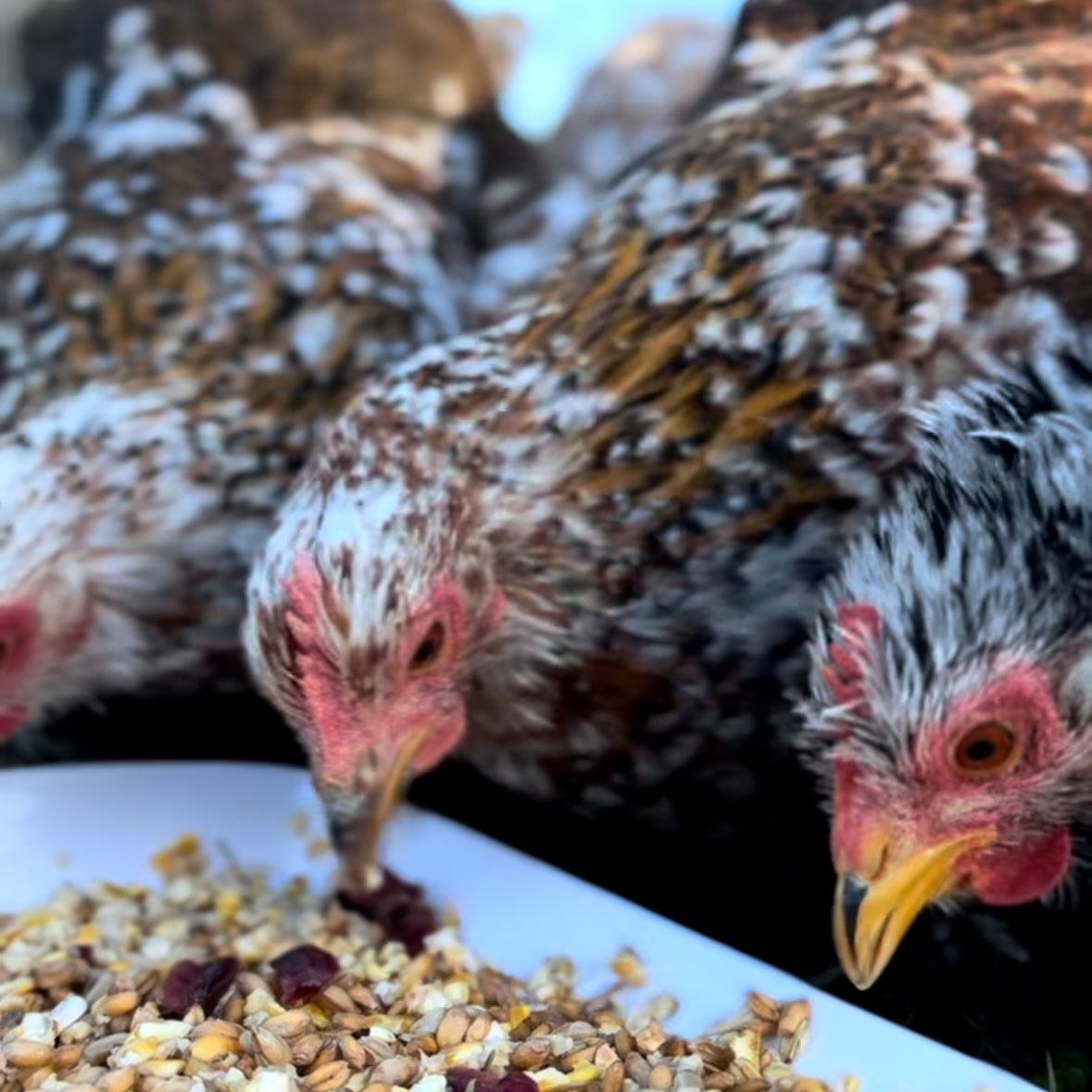


What Can (and Can’t) You Feed Your Chickens?
If you’ve got pet chickens, you’ll know they’re not exactly fussy eaters. In fact, some hens will try to eat just about anything—your plants, your shoelaces... We've even known some of our more cheeky birds to go for our sandwiches when left within beak’s reach!! But just because they can eat something doesn’t mean they should.
So, what’s the best way to keep your feathered friends well-fed, happy, and laying the best eggs? And what should you avoid giving them? Here’s everything you need to know about feeding your chickens the right way, brought to you by the chicken rearers here, Pipinchick; we raise and nurture healthy, happy pet chickens to sell and deliver them safely to your door.
What Can You Feed Chickens?
Chickens need a balanced diet to stay healthy, lay strong eggs, and keep those fluffy feathers looking fabulous. A good-quality layer feed should always be their main source of food, but you can supplement their diet with a range of safe, nutritious treats.
Safe and Healthy Treats for Chickens
- Fruits and Vegetables – Most fruits and veggies are great for chickens, just avoid anything mouldy or rotten. Leafy greens, lettuce, apples, berries, carrots, cucumbers, and squashes are all favourites.
- Dried Corn – A brilliant snack, especially in winter, as it's high engird so can help keep them warm. Scatter some around for a bit of fun foraging.
- Live Grubs – Black fly larvae, mealworms, and soldier fly larvae are packed with protein and loved by chickens. A great treat, but remember, it’s illegal in the UK to feed them dried grubs. You can read more about the benefits of feeding your hens live feed here.
- Seeds and Nuts – A good source of fats and nutrients, but offer sparingly—too much can lead to weight gain.
- Dried Woodland Mushrooms – If they’re safe for humans, they’re safe for hens. Chickens love a nibble on these earthy treats.
- Edible Flowers – Marigolds, nasturtiums, roses, and lavender not only brighten up your garden but are also tasty and healthy for your hens.
- Herbs – Oregano, parsley, thyme, rosemary, and lemon balm are all great for boosting hen health. They’re also natural pest repellents, so feel free to pop some in their nesting boxes.
- Porridge (in winter) – Rolled oats mixed with warm water make a lovely evening treat when the temperatures drop. It helps keep them cosy overnight as they burn the energy. Just be mindful of how much you are feeding them, as oats are quite high in fat.
A mix of these natural treats will not only keep your chickens healthy but also entertained. Happy hens love to peck, scratch, and forage—so scattering treats in their run is a great way to encourage natural behaviours.
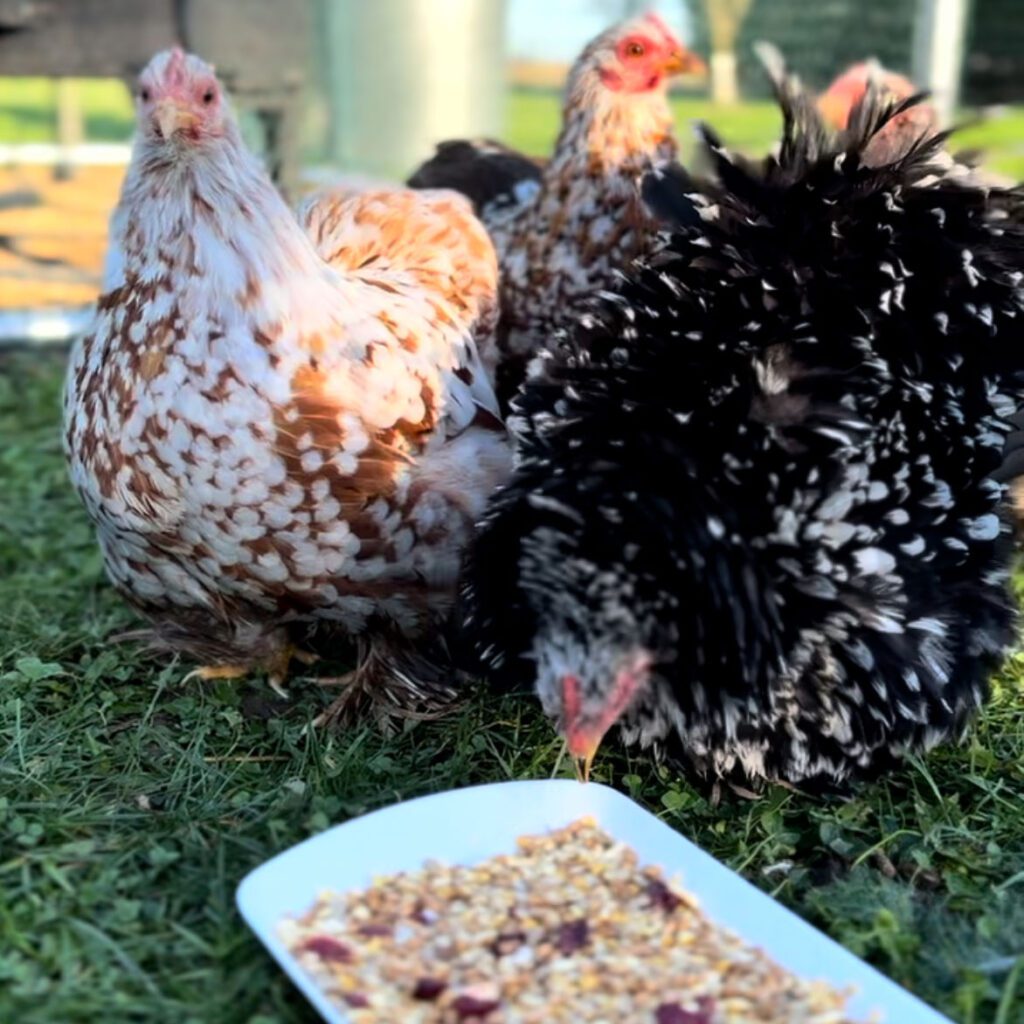
What Can’t You Feed Chickens?
Not everything is safe for your flock, and some foods can even be harmful. If in doubt, leave it out.
- Kitchen Scraps and Leftovers – It might sound surprising, but in the UK, it’s actually illegal to feed chickens food that has been in your kitchen, including bread, pasta, cooked veg, or even your own homegrown fruit if it has been inside your house. This rule is in place to prevent disease transmission.
- Meat and Dairy – Absolutely not. Chickens maybe omnivores, but feeding them meat or dairy products (like cheese or yoghurt) is against UK regulations and can lead to health issues.
- Raw or Green Potatoes – The skins contain solanine, which is toxic to chickens. Cooked, plain potatoes are fine in small amounts, but raw is best avoided.
- Onions and Garlic – In large quantities, these can cause digestive problems and even affect the taste of their eggs (no one wants onion-flavoured eggs).
- Avocado (Especially the stone and skin) – Contains persin, a toxin that can be harmful to chickens.
- Chocolate and Sugary Foods – Chocolate is toxic to chickens, just like it is for dogs. And sugar is not good for their health either.
- Mouldy or Rotten Food – It might seem like a waste to throw away old food, but mould can produce toxins that are dangerous to chickens. If it’s not fresh, don’t feed it.
- Uncooked Beans – These contain lectins, which can be deadly to chickens if eaten raw. Cooked beans are fine, but really, they’re not the best treat—there are plenty of better options for your chickens.
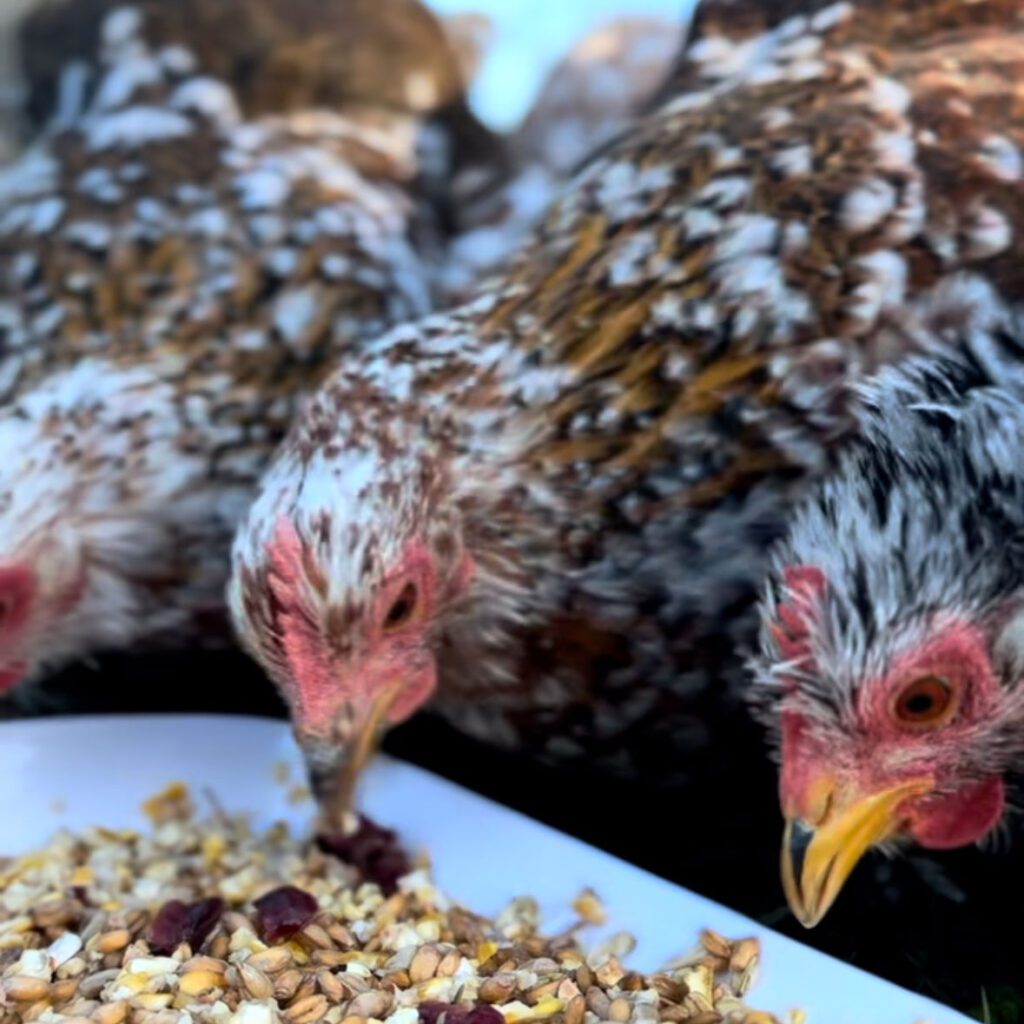
Keeping Your Hens Happy and Healthy
Feeding chickens the right way isn’t just about nutrition—it’s about keeping them engaged, active, and full of energy. Give them space to forage, scatter some healthy treats, and watch them scratch and peck to their heart’s content.
By sticking to the right foods and avoiding the banned ones, you’ll ensure your girls stay healthy, keep laying beautiful eggs, and live long, happy lives.
So next time your hens give you the look as you snack on something tasty, you’ll know exactly what you can (and can’t) share with them.

